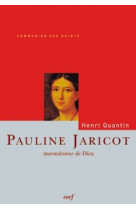--
His face was emaciated, his mouth tense, his body nothing but skin and bone but his eyes burned with passion, consumed with love. Turning his gaze on the Scriptures, Jerome scrutinized them, excavated them, clawed at them and ploughed them to find the true face of God. He spared himself nothing in this search: neither the study of the Holy Places, nor learning Hebrew, nor long nights spent in contemplation. Everything excited him: his passion for God, but also his love of literature and the ardours of the flesh. Everything worried him. The slightest suspicion about his attachment to the doctrine of his Faith drove him, if necessary, to betray even his friends. Nothing could appease him. From the austere surroundings of his communities in Bethlehem, he perceived the doctrinal errors and the lies uttered about monastic life. He could only react with violence. A misanthropist, he loved the religious community. To attack that community was to wound him personally. Not only did St. Jerome translate the Bible, he also commented it. He began with short prophetic texts, such as that by Abdias, and culminated with Isaiah's - a masterpiece. All this knowledge was not acquired solely from books it was also nurtured by his personal asceticism. It was the fruit of a veritable life of prayer. He was a great spiritual master. Jerome was more than a saint, he was an empire, overthrown, tortured, but ultimately triumphant. It is impossible to remain unaffected by his story.








